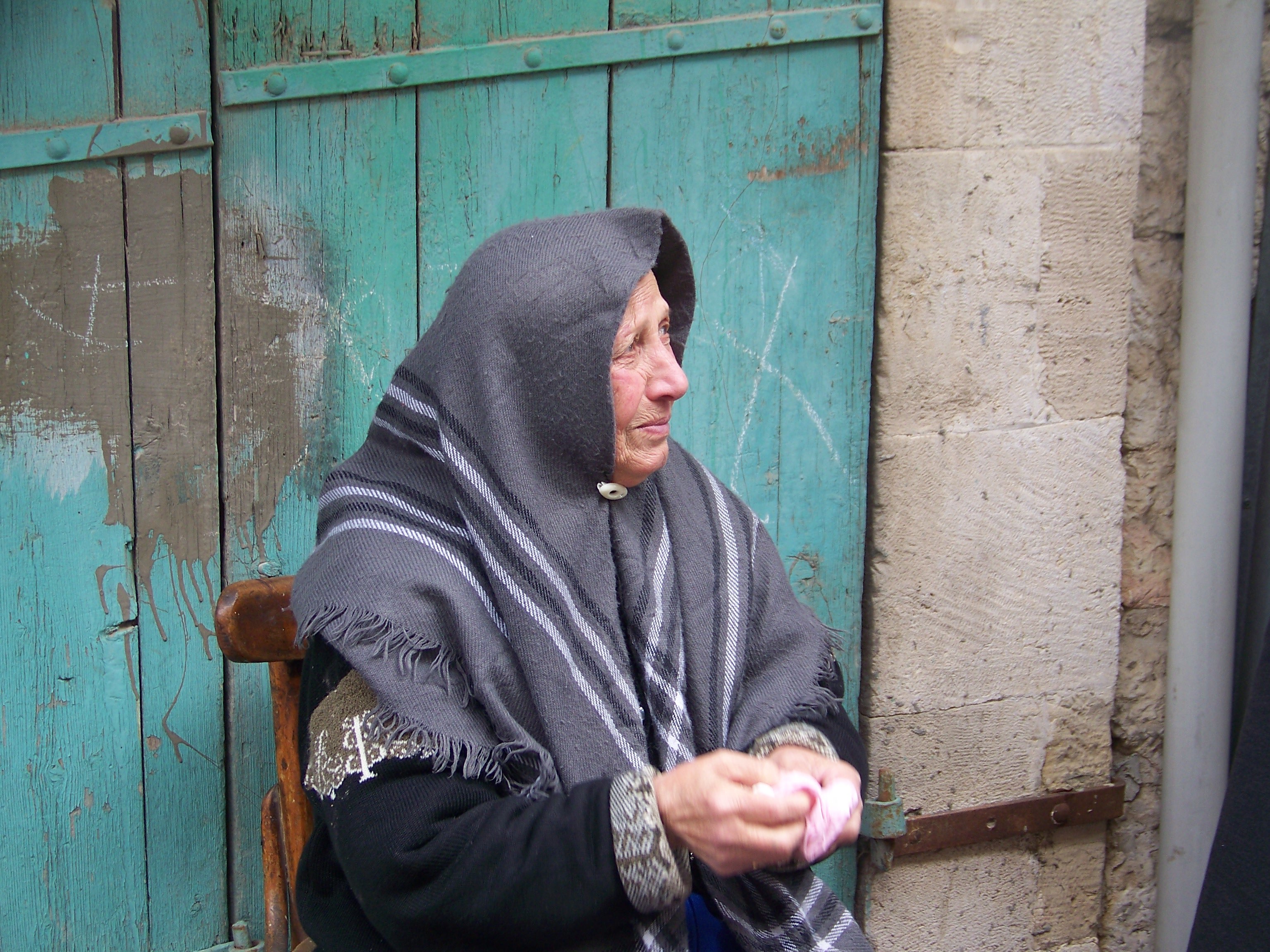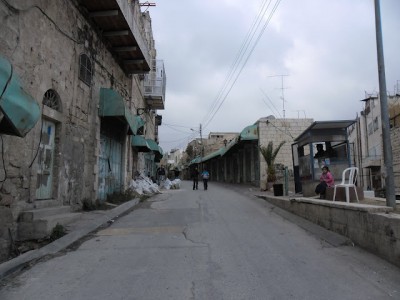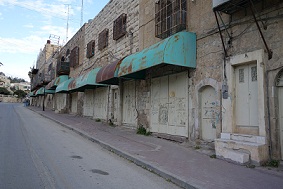Tag: Shuhada Street
-
Israeli forces weld shut the doors of an elderly Palestinian woman’s houses on Shuhada Street
19th January 2015 | International Solidarity Movement, Khalil team | Hebron, Occupied Palestine This afternoon in occupied al-Khalil (Hebron), Israeli forces gathered on Shuhada street, surrounding the doorways to the two houses belonging to Aamal Hashem Dundes, an elderly Palestinian woman, and her family. A soldier, wielding a torch and various other equipment, welded shut the doors.…
-
No Jews allowed
5th June 2014 | International Solidarity Movement | Hebron, Occupied Palestine My plan for the morning was pretty simple, I wanted to enter the souq (market) and buy some bread for breakfast, and then walk home. That was it. As I made my way towards the souq entrance I was stopped by two Israeli border police…
-
ISM volunteers attacked by Zionist tourists in Hebron
Two ISM activists walking on Shudaha Street area were brutally attacked by French Zionist tourists who were visiting to attend the weekly settler tour of the Palestinian part of Hebron. At around 1:30 PM the activists were walking in the direction of Shuhada Street when the 6 young men rounded the corner, upon seeing the activists…



